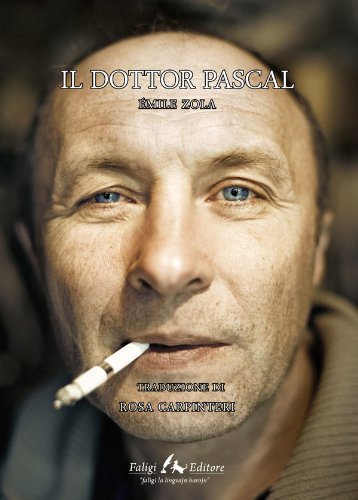What do you think?
Rate this book


309 pages, Kindle Edition
First published January 1, 1893
No matter how awful it might seem, life was necessarily great and good, because people put so much tenacious will into living it, the purpose being, no doubt, this same will itself and the great work it unwittingly performed. Of course, he was a scientist, a man of unclouded vision, he didn’t believe in an idyllic humanity living in a land of milk and honey – quite the opposite, he saw the vices and defects, and had been exposing them, probing them and cataloging them for thirty years, but his passion for life, his admiration for the forces of life, were enough to throw him into a state of constant joy, from which seemed to flow naturally his love of others, a brotherly compassion, a fellow feeling, that you could sense beneath the unflinching rigour of the anatomist and the affected impersonality of his studies.This, the twentieth and final of the Rougon-Macquart novels, is the only one that requires having read at least a few of the preceding novels. Otherwise, it could be a bit confusing, not its plot, but because many of the philosophical insights and references would lose much, if not most, of their impact and meaning. If you’re only going to read one, don’t make it this one; if you’re intending to read more, save it for later.
Even though she’d been torturing him for years and there was nothing he didn’t know about her, he remained a deferential son and had vowed to himself never to abandon this resolutely respectful stance. And so as soon as she broached certain subjects, he took refuge in absolute silence.He takes pride in the distance his neighbors, his patients, put between him and the rest of the Rougons:
“Have you ever heard anyone in this town call me Pascal Rougon? No! People have always said Doctor Pascal, full stop. That’s because I’m the odd one out. And it may not be very nice of me, but I’m delighted, because there are some legacies that are really too heavy to bear. However much I may love them all, my heart still beats with glee when I feel myself to be alien, different, that I have absolutely nothing in common with them, my God! It’s a breath of fresh air, it’s what gives me courage to put them all down there on paper, to lay them bare in these files, and still find the courage to go on living.”Pascal is personally and scientifically obsessed by the role heredity plays in human behavior; does it overwhelm, controlling behavior and choices people make in their lives or can it be escaped to create independent, free will? The more he examines his family and compares their individual stories, however, the more he fears the burden and controlling force of heredity.